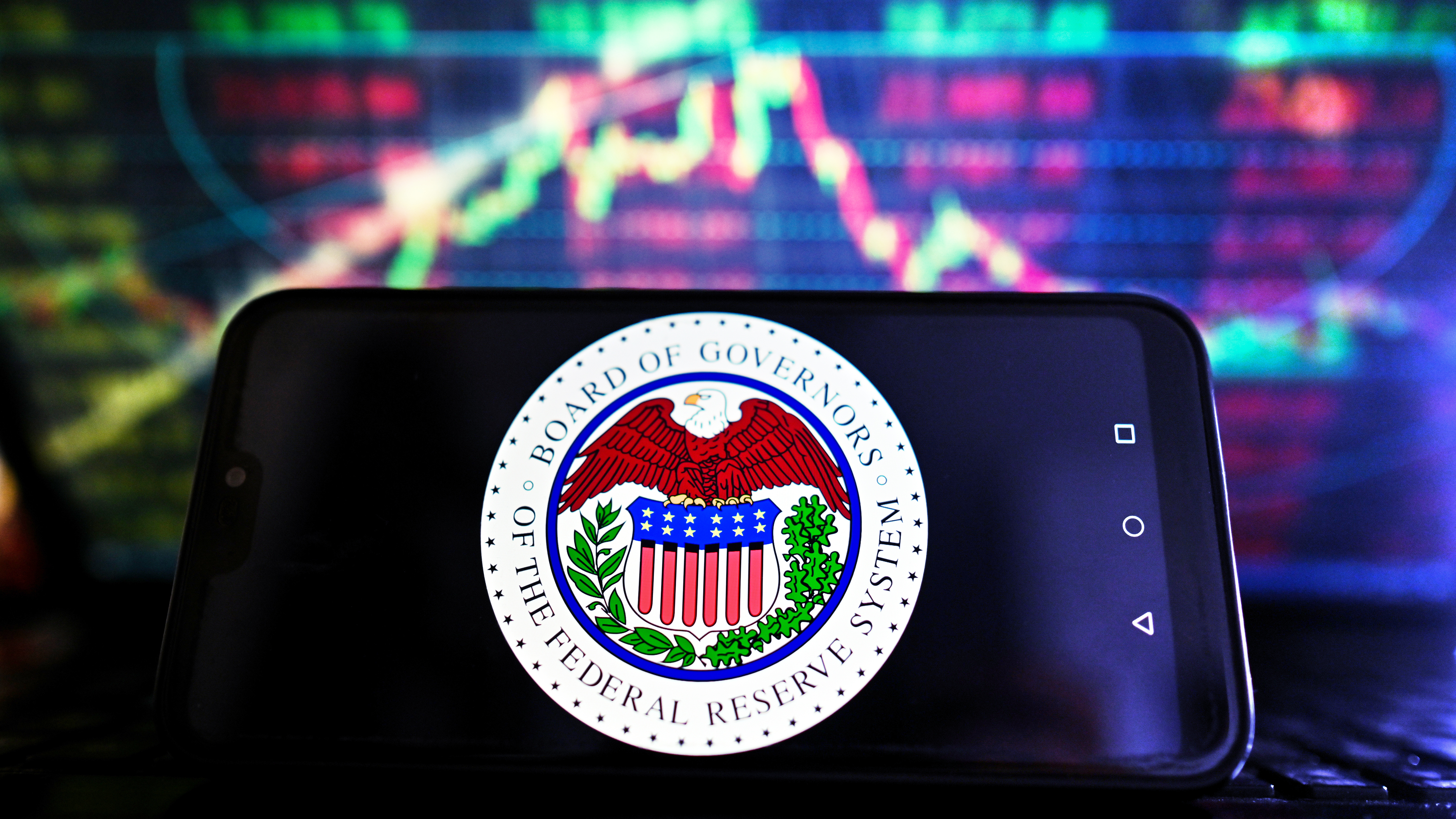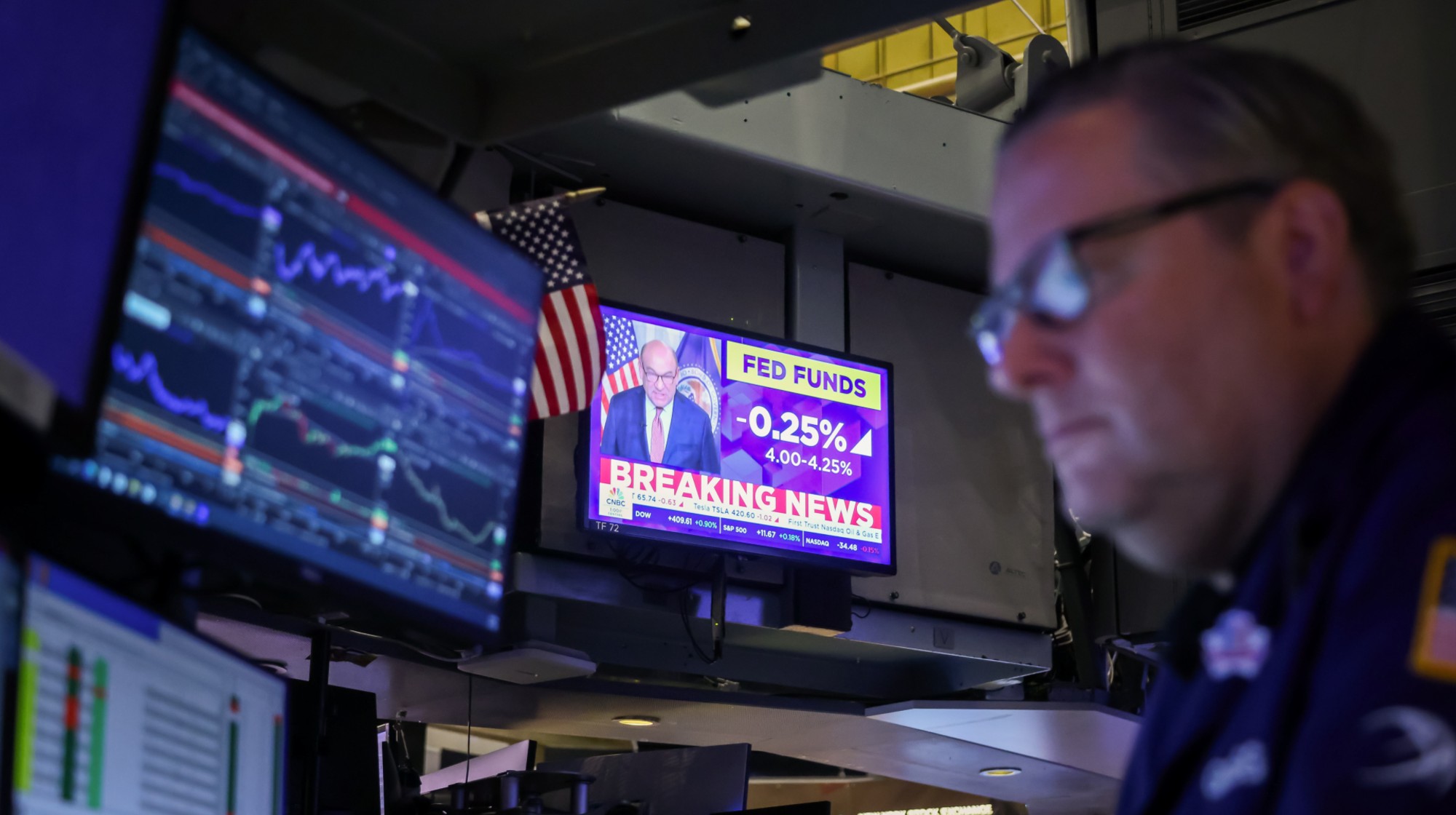Do bank failures mean the Fed should slow its interest rate hikes?
Choosing between reining in inflation and financial stability


A free daily email with the biggest news stories of the day – and the best features from TheWeek.com
You are now subscribed
Your newsletter sign-up was successful
Economic disasters are colliding. The collapse of American banks like Silicon Valley Bank and Signature Bank, and the near-miss with Credit Suisse bank in Switzerland — before USB bought it this week — have sent still-reverberating shock waves throughout the world of finance. Those failures come just as the Federal Reserve meets this week to decide whether to raise interest rates again in its ongoing attempt to rein in still-rampant inflation afflicting the United States and much of the rest of the world.
How are the two related? Economists say the failure of Silicon Valley Bank, for example, was sparked by the Fed's recent rate hikes. While "there's lots of blame to go around," The Washington Post's Abha Bhattarai explains that the rise in rates made investors "more interested in new bonds that promised to pay more," while older bonds with lower rates "became less desirable — and therefore less valuable." A lot of assets in those suddenly-struggling banks were tied up in those older bonds.
That has raised the question of whether the Fed should press ahead with its inflation-fighting rate hikes — or if it should slow down rather than risk tipping over the entire banking system. Goldman Sachs forecasters say they don't expect a rate hike this month, but "few, if any" other Wall Street analysts share that view, CNBC reports. "This is a very tough job," Bloomberg's Michael Mackenzie adds. All eyes will be on the Fed this week, with an eye on how Fed Chairman Jerome Powell tries to find balance "without stirring further concerns — either for financial stability or inflation."
The Week
Escape your echo chamber. Get the facts behind the news, plus analysis from multiple perspectives.

Sign up for The Week's Free Newsletters
From our morning news briefing to a weekly Good News Newsletter, get the best of The Week delivered directly to your inbox.
From our morning news briefing to a weekly Good News Newsletter, get the best of The Week delivered directly to your inbox.
What are commentators saying?
The Washington Post editorial board highlights research showing that 190 banks across the country are at risk of a Silicon Valley Bank-style collapse if their customers lose confidence. That has "triggered concerns about what is next to rupture," the board argues, which is why the Fed should pause rate hikes "to give the financial system time to adjust to the new reality."
Not so fast. "I don't think the Fed has any good options here," economist Tim Duy tells Reuters. "The risk is allowing inflation to become even more embedded versus the risk of aggravating a broader banking crisis." But Reuters points out that the bank failures may help accomplish the Fed's mission of bringing inflation under control: Banking stress probably means a credit contraction is coming — less money will be loaned out to homeowners and businesses, which is less money that they'll spend, which should ease inflationary pressures. "To a degree that is what the Fed wants when it tightens monetary policy, as long as the drop in lending is orderly and doesn't go too far." That might mean the Fed can pause rate hikes without letting inflation run wild. "There's nothing more deflationary than the collapse of a highly-indebted bank," says CNBC's Jim Cramer.
History doesn't offer happy lessons in these situations, however. "When the Fed starts hiking rates, it typically keeps at it until something breaks," Alexander Kurov writes at The Conversation. (The rate hikes of the late 1970s, for example, pushed the American economy into a massive recession before inflation cooled off.) But it's "not so simple" to suggest that the Fed should slow down the rise in interest rates: A slowdown could have the perverse effect of signaling to investors that the broader banking system is more fragile than they thought. Then again: "Increasing rates at a moment like this would mean putting more pressure on a structure that's already under a lot of stress."
What's next for the Fed?
It seems possible we'll get a compromise action this week from the Fed — a rate hike, but not one nearly as big as originally planned. "Many economists expect central bankers to raise interest rates a quarter-point," The New York Times reports, pointing out that "analysts had expected the Fed to make an even bigger rate move" before the bank failures raised questions about the nation's financial stability.
A free daily email with the biggest news stories of the day – and the best features from TheWeek.com
The analysts at Charles Schwab point out that the Federal Reserve has two official mandates — to keep inflation in check and promote full employment. But there's a third, unofficial mandate: "To maintain financial stability." Which is why the Fed will probably slow down its rate-hiking plans. "In times of stress," they write, "financial stability concerns often trump the other two mandates."
Joel Mathis is a writer with 30 years of newspaper and online journalism experience. His work also regularly appears in National Geographic and The Kansas City Star. His awards include best online commentary at the Online News Association and (twice) at the City and Regional Magazine Association.
-
 The environmental cost of GLP-1s
The environmental cost of GLP-1sThe explainer Producing the drugs is a dirty process
-
 Greenland’s capital becomes ground zero for the country’s diplomatic straits
Greenland’s capital becomes ground zero for the country’s diplomatic straitsIN THE SPOTLIGHT A flurry of new consular activity in Nuuk shows how important Greenland has become to Europeans’ anxiety about American imperialism
-
 ‘This is something that happens all too often’
‘This is something that happens all too often’Instant Opinion Opinion, comment and editorials of the day
-
 Will Trump’s 10% credit card rate limit actually help consumers?
Will Trump’s 10% credit card rate limit actually help consumers?Today's Big Question Banks say they would pull back on credit
-
 What will the US economy look like in 2026?
What will the US economy look like in 2026?Today’s Big Question Wall Street is bullish, but uncertain
-
 Is $140,000 the real poverty line?
Is $140,000 the real poverty line?Feature Financial hardship is wearing Americans down, and the break-even point for many families keeps rising
-
 Fast food is no longer affordable for low-income Americans
Fast food is no longer affordable for low-income AmericansThe explainer Cheap meals are getting farther out of reach
-
 Why has America’s economy gone K-shaped?
Why has America’s economy gone K-shaped?Today's Big Question The rich are doing well. Everybody else is scrimping.
-
 From candy to costumes, inflation is spooking consumers on Halloween this year
From candy to costumes, inflation is spooking consumers on Halloween this yearIn the Spotlight Both candy and costumes have jumped significantly in price
-
 Why are beef prices rising? And how is politics involved?
Why are beef prices rising? And how is politics involved?Today's Big Question Drought, tariffs and consumer demand all play a role
-
 Fed cuts interest rates a quarter point
Fed cuts interest rates a quarter pointSpeed Read ‘The cut suggests a broader shift toward concern about cracks forming in the job market’
